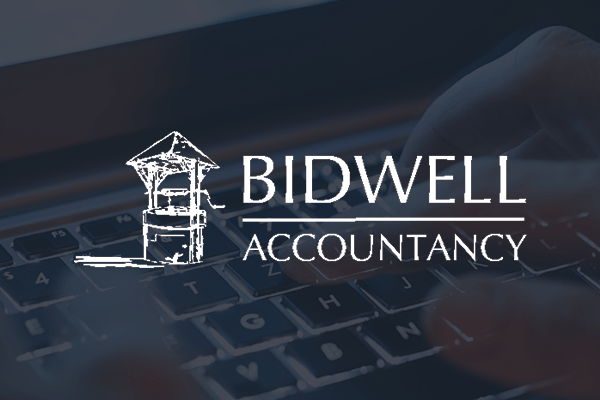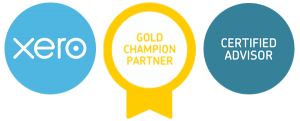August Newsletter

Welcome to our summer issue, we hope you’re managing to take a break this summer, ready for the next quarter. Our August newsletter contains tax advice on a few different topics - be sure to ask if you need more guidance in any of these, or other, matters.
Our first article concerns anyone with an IVA who might be struggling to make agreed payments as the cost of living continues to rise - read our pointers on how you can navigate this.
Moving on to the useful tax information... You might be able to claim tax-relief on up to £2000 per year via trading or property allowances, have a look at the details of these schemes. There’s also a piece on the tax implications of selling any personal items over the value of £6000 - possibly a lesser known tax requirement.
We conclude August’s newsletter with important financial dates you’ll need to note for the coming weeks. Have a good summer.
Individual Voluntary Arrangements (IVA)
If you are locked into an IVA and are concerned that recent increases in the cost of living are creating severe financial pressures, you can ask your IVA supervisor to review your income and expenses to see if you are eligible for a reduction in payments or a payment break.
You will be required to provide evidence of your income and expenditure to support a change to your contributions. This could include providing payslips, statement of benefits or utility bills.
Any amendments to your contributions into your IVAs would need to be agreed with your creditors.
If you are needing to speak to an IVA advisor then please do not hesitate to contact us and we can put you in touch with some of our partners.
Up to £2,000 tax free
Since 2017, there is no tax to pay on trading income or earnings from land and property as long as the income from each source does not exceed £1,000.
Trading allowance
The trading allowance is a tax exemption of up to £1,000 a year for individuals with trading income from:
- self-employment.
- casual services, for example, babysitting or gardening.
- hiring personal equipment, for example, power tools.
This allowance does not apply to trading income from a partnership.
Property allowance
The property allowance is a tax exemption of up to £1,000 a year for individuals with income from land or property.
If you own a property jointly with others, you are each eligible for the £1,000 allowance against your share of the gross rental income.
If you have two businesses and claim the property allowance in one business, you may not claim actual expenses in respect of the other business.
You cannot use this allowance on income from letting a room in your own home under the Rent a Room Scheme.
There are various provisions to make sure that these allowances are not exploited. If you want to take advantage of either or both these allowances read the fine
print on the gov.uk website.
Political hiatus
Now our present Prime Minister has indicated his intention to resign it seems unlikely that a successor will be appointed before September.
Which means Boris Johnson’s cabinet are caretakers for the interim period and it is doubtful that there will be any far-reaching changes to UK taxes.
The new Prime Minister and his or her Chancellor will want to stamp their authority on legislation when in post in which case it is possible that we will have an early Autumn Budget this year.
Be prepared for extremes. Higher taxes, lower borrowings and reduced public expenditure is one possibility, the other, lower taxes and initially, higher borrowings.
We shall see.
Tax when selling personal possessions
There are certain circumstances when you will pay Capital Gains Tax when selling personal possessions.
You may have to pay Capital Gains Tax if you make a profit (‘gain’) when you sell (or ‘dispose of’) a personal possession for £6,000 or more.
For example, you may need to pay tax on sale of personally owned jewellery, paintings, antiques, coins and stamps, or sets of things, e.g., matching vases or chessmen.
You will need to work out your gain to find out whether you need to pay tax.
In most cases, you do not need to pay tax on gifts to your husband, wife, civil partner or a charity.
Also, you do not pay Capital Gains Tax when you sell your car - unless you have used it for business, or anything with a limited lifespan, e.g., clocks - unless used for business purposes.
You are also exempt from paying tax on the first £6,000 of your share if you own a possession with other people.
Tax Diary August/September 2022
1 August 2022 - Due date for corporation tax due for the year ended 31 October 2021.
19 August 2022 - PAYE and NIC deductions due for month ended 5 August 2022. (If you pay your tax electronically the due date is 22 August 2022)
19 August 2022 - Filing deadline for the CIS300 monthly return for the month ended 5 August 2022.
19 August 2022 - CIS tax deducted for the month ended 5 August 2022 is payable by today.
1 September 2022 - Due date for corporation tax due for the year ended 30 November 2021.
19 September 2022 - PAYE and NIC deductions due for month ended 5 September 2022. (If you pay your tax electronically the due date is 22 September 2022)
19 September 2022 - Filing deadline for the CIS300 monthly return for the month ended 5 September 2022.
19 September 2022 - CIS tax deducted for the month ended 5 September 2022 is payable by today.

Unit 157, Milton Keynes Business Centre,
Foxhunter Drive, Milton Keynes,
Buckinghamshire, MK14 6GD
Bidwell Accountancy




